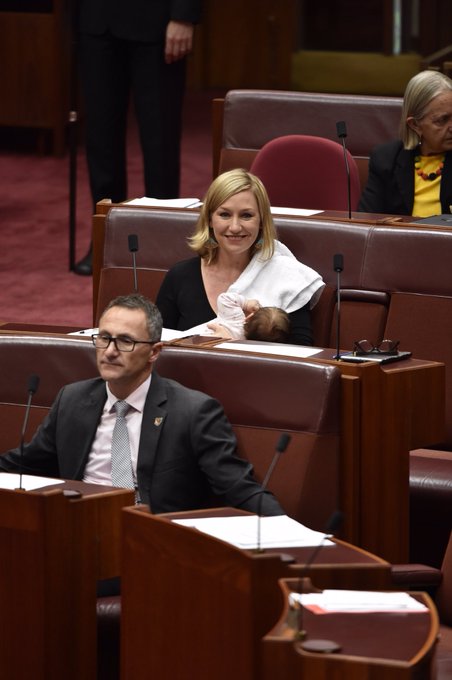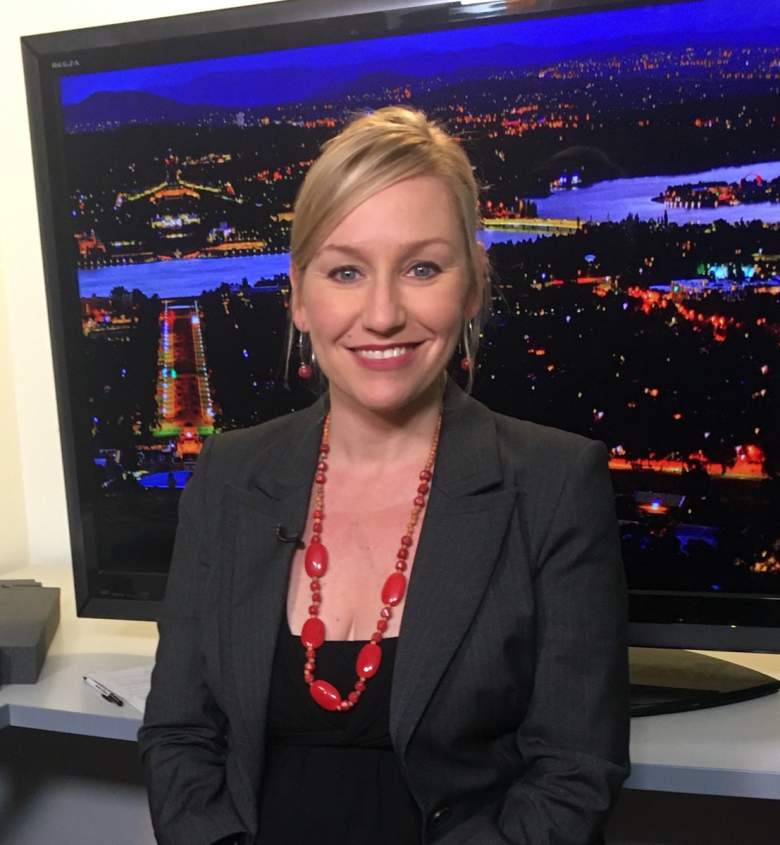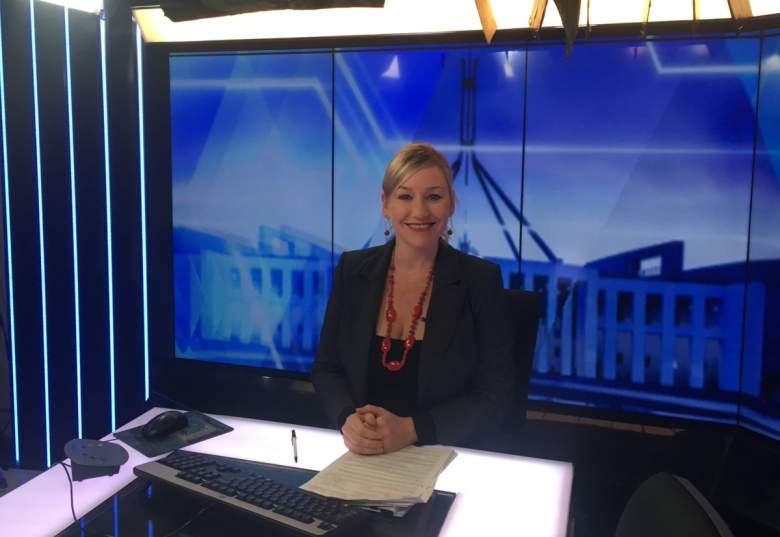Senator Larissa Waters made history in Australia‘s Parliament in Canberra on May 9 by becoming the first politician to breastfeed during a session. Although new rules allowing women to breastfeed while in Parliament have been in place since 2003, this was the first time anyone had done so.
“So proud that my daughter Alia is the first baby to be breastfed in the federal Parliament! We need more #women & parents in Parli #auspol,” Waters wrote on Twitter.
Here’s what you need to know about Waters, Australia’s rules on breastfeeding in Parliament and breastfeeding in public laws in the U.S.
1. Waters’ Daughter Alia Joy Was Born 2 Months Before Her Mom Breastfed in Parliament
As SkyNews notes, Waters’ daughter, Alia Joy, was only born a few weeks ago. She’s two months old.
Waters told the Courier-Mail that she planned on breastfeeding Alia in Parliament two days before she returned the Australian Senate. Waters, who is the co-leader of her Greens Party, said her partner and Alia’s dad, Jeremy Gates, will be with her in Canberra for the historic occasion.
“If she’s hungry, that’s what you do, you feed your baby,” Waters told the Courier-Mail. “I hope she doesn’t squawk her head off too much, but she’s probably going to be better behaved than many of the people in that room.”
Despite her success in helping pass new Parliament rules to make it easier to breastfeed, Waters said gender discrimination is still common.
“One in five women experience severe discrimination on the basis of their parenthood,” she told the Courier-Journal. “It is a very sobering statistic, and it’s really disheartening for people to see that even Cabinet ministers can be subjected to that as well.”
Waters was previously married to Brendan O’Malley.
2. Politicians Were Removed From the Australian Parliament in 2003 & 2009 for Breastfeeding on the Floor
Waters’ achievement is a major deal in Australia because of past controversies where politicians have been ejected from Parliament for breastfeeding. Back in 2003, Victorian Labour MP Kirstie Marshall was asked to leave after she breastfed her 11-day-old daughter.
Although there were rules put in place after that incident to allow breastfeeding in Parliament, Sarah Hanson-Young, a member of Waters’ party, was ejected in 2009 when she was breastfeeding her two-year-old daughter.
Then in September 2015, Cabinet Minister Kelly O’Dwyer was told to “express more breast milk” before she returned to Parliament by a male MP after she gave birth to her daughter.
So in 2016, the Australian Senate and House of Representatives finally made things easier for women – and men – with young children. In 2016, Australia’s ABC News reported that rules were put in place to make Parliament more “family friendly.” Waters was part of the movement to get the rules passed.
“No member, male or female, will ever be prevented from participating fully in the operation of the Parliament by reason of having the care of a baby,” Leader of the House Christopher Pyne said in 2016.
3. Waters Said the Attention is ‘Slightly Ridiculous,’ but She Wanted to Send a Message to Women
In an interview with the BBC, Waters said she thought the international attention she’s getting is “slightly ridiculous” since women have been breastfeeding forever. But she said she’s hoping to send a message to young women that they can have families and still be a member of Parliament.
“I’d hoped to not only feed my baby, but to send a message to young women that they belong in the Parliament and that they can both be Parliamentarians and be moms,” she told the BBC.
The 40-year-old Waters also said that the reaction from her colleagues has been mostly positive. Unfortunately, “There has been the odd poor taste remark, but they’re from some of them ore elderly members of the Senate who perhaps haven’t entered this century yet.”
4. Women Have Been Breastfeeding in Other Countries’ Parliaments For Several Years Before Waters
While Waters made history in Australia, she didn’t make history on an international level.
“Women have been doing it in parliaments around the world… It is great to see it is able to occur now in the Senate,” fellow Senator Katy Gallager told Sky News. “Women are going to continue to have babies and if they want to do their job and be at work and look after their baby… the reality is we are going to have to accommodate that.”
For example, an Argentinian politician became a viral star in 2015 when photos of her breastfeeding circulated around the world.
In January 2016, Spanish MP Carolina Bescansa was criticized by her male colleagues for breastfeeding in Parliament, notes the BBC. One colleague called it “frankly unnecessary.”
5. Breastfeeding in Public is Allowed in 49 U.S. States
Although there are no cases of female members of the U.S. Congress breastfeeding on the floors of the House and Senate, there has been growing acceptance of breastfeeding in public around the country. It is legal in 29 states, as well as the District of Columbia and the Virgin Islands. The only state where it is still not protected is Idaho. In 1999, a House bill blocked government funds from being used to stop women from breastfeeding on government property.
According to Idaho Breastfeeding Laws.com, there is a law in the state that exempts breastfeeding women from jury duty. In September 2016, there was a rumor of a woman being arrested for breastfeeding in public in Idaho, but Snopes found that the story was false.


